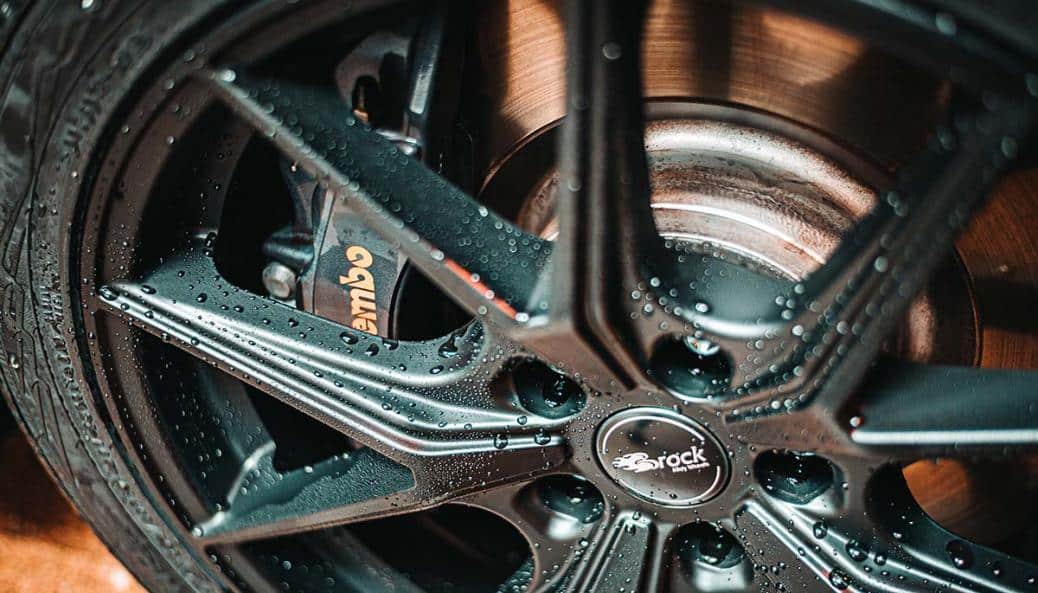0 items - £0.00
No products in the basket.

Car tuning is an art form in its own right. You can explore your own creativity and technical knowledge while working. With so many options, parts, and ways to modify your car, it can be overwhelming for a beginner.
We’ll go through some essential tuning aspects and valuable tips to keep in mind if it’s your first time tuning a car or even if you’re a tuning veteran.
What is Tuning?
Car tuning is modifying your vehicle for better performance or better looks. Increasing engine power, installing a better suspension, and fitting a big brake kit are all ways to tune your car for better performance.
While some cars are more receptive than others to engine modifications, all cars can benefit from upgraded suspension and brakes. For example, when tuning a 335i a lot of your efforts will be on engine performance but if you tune a Miata you’ll focus more on suspension upgrades for the best handling possible. Tuning your car for performance can also make it track-ready when done in a balanced way.
In addition to that, you can also opt for aesthetic mods like a wrap, a rear diffuser, or just painted calipers. These won’t add performance but will make your car look more unique and personal.
5 Essential Tuning Tips
When tuning a car for the first time, there are a few crucial areas that some owners tend to forget as they focus solely on increasing engine output.
Don’t neglect your brakes
Most first-time tuners might be inclined to jump straight into engine modifications for horsepower gains, neglecting braking performance. More horsepower usually means higher speeds, and consequently, you’ll need brakes that can stop your car effectively from the higher speeds it can now develop.
Remember, your brakes need to be capable of dissipating the increased kinetic energy of your vehicle. Consider upgrading to performance brake pads and rotors. A big brake kit could also be fitted to your car, and this consists of bigger or stronger calipers, bigger rotors, and brake pads with larger area.
A short shift kit can make all the difference
Most manual transmission cars come equipped with gear shifters designed for comfortable, relaxed street driving, resulting in long shifter throws. A short shifter kit, on the other hand, can significantly reduce the distance you need to move the gear stick when changing gears, allowing you to shift faster and more accurately.
This might seem like a minor change, but it can dramatically enhance not only your driving experience but also acceleration speeds, making it feel like you’ve upgraded your entire transmission.
Never cheap out on tires
Tires are one of the most crucial components of the car – they are, after all, the only part of the entire vehicle making contact with the ground.
Investing in a set of high-quality performance tires is crucial. Apart from providing better grip, worn or low-quality tires can cause vibration issues, excessive road noise, and can pose a significant safety hazard not only to you but everyone else on the road.
Opt for high-performance tires that can cope with the increased demands of a tuned car. An excellent option are the Michelin Pilot Sport 4S’s. If you don’t need extreme grip and are looking for a set of tires that you can potentially run all year round, the Michelin Pilot Sports 4 All Season or the Continental DWS06 Plus are great performing all-season tires.
Avoid flame tunes
While flame tunes make your car look spectacular at night, they can lead to significant issues down the line, even when using a proven tune.
A bad flame tune may cause serious damage to your engine, turbo, and exhaust system, including the risk of catastrophic engine damage. Even a subtle flame tune could ruin your turbo. It’s always better to prioritize your vehicle’s long-term performance over a few cool pops and bangs.
If you must use a flame tune, limit it to a few nights a year. Do not run a constant flame tune on your daily unless you’re fine with serious powertrain damage.
Keep up with maintenance
Tuning your car is more interesting and exciting than performing preventive maintenance. That said, boring maintenance still needs to be performed at even more frequent intervals when you tune your car.
After tuning your car, the engine, transmission, drivetrain, and even your suspension and brakes will be subject to higher strain and wear after tuning. Frequent fluid changes are a must to keep the internals of your car trouble-free.
Closing thoughts
Building your first project car or enhancing your daily is always exciting. Envisioning the car, getting the parts, installing the parts, and noticing how your ride slowly takes shape is a great learning experience.
With added power, you also need better brakes to bring the car to a safe stop if needed. And with more power and better brakes, you need a firmer suspension that can keep your car stable when accelerating hard, abruptly braking, or cornering fast. A good set of tires can make all the difference as well.
Remember, tuning is not just about bringing your car up to ridiculous amounts of power. Keep your upgrades balanced, stay away from flame tunes, and don’t forget to keep up with maintenance.

Development Office, Unit 211 East London Works, London, E1 1DU
© 2017 3Dom Wraps | Terms & Conditions | Privacy
Created with love @ 